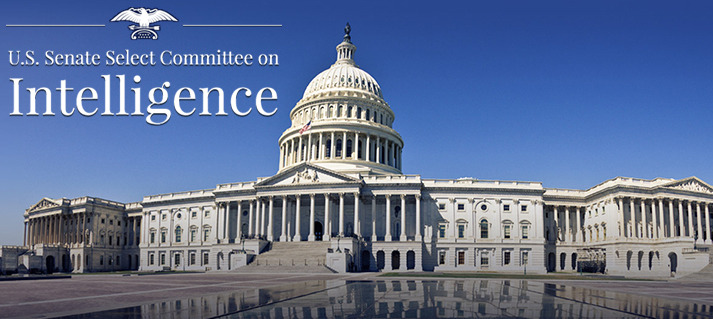U.S. Senate Intelligence Committee leaders are nearing completion of a draft bill that applies civil penalties to tech companies resisting court-ordered requests for assistance in unlocking encrypted hardware, according to a Wednesday report.
Citing sources familiar with the matter, Reuters reports Intelligence Committee Chairman Sen. Richard Burr (R-NC) and Vice Chair Sen. Dianne Feinstein (D-CA) are close to finalizing legislation that could find companies like Apple facing contempt of court charges and related penalties.
Rumors of the forthcoming legislation circulated in February attached to Burr's camp, thought to be in the planning stage at the time. While the timetable could change, today's report claims Burr and Feinstein plan to share the bill with interested parties next week ahead of a formal Senate introduction.
Unlike previous reports, Reuters said the soon to be proposed legislation would apply civil penalties to companies resisting or refusing proper government decryption requests, not criminalization.
The draft bill comes amidst heated debate over the correct balance between strong encryption technologies and state access to critical data. Apple is currently resisting an order handed down by a federal magistrate judge requiring its assistance in unlocking an iPhone 5c used by San Bernardino shooter Syed Rizwan Farook. In its request, the FBI is asking Apple to create, sign and deploy a purposely flawed version of iOS that would facilitate a brute-force attack on Farook's passcode-locked phone.
Tech companies and civil rights groups have come out in support of Apple's decision to protect its encryption systems, filing friend of the court briefs detailing the potential pitfalls of compelling first-party assistance. A Department of Justice win would set precedent for future law enforcement operations involving encrypted devices — nearly all current investigations entail digital evidence gathering, according to Attorney General Loretta Lynch — and could expose millions of iOS device owners to potential threats.
For its part, the government maintains Apple's workaround will be applied only in the San Bernardino case, an investigation that could produce valuable information on active terrorist cells operating on U.S. soil. The government has the backing of law enforcement groups and national security hawks.
 Mikey Campbell
Mikey Campbell







-m.jpg)






 Charles Martin
Charles Martin
 Christine McKee
Christine McKee
 Wesley Hilliard
Wesley Hilliard
 Malcolm Owen
Malcolm Owen
 Andrew Orr
Andrew Orr
 William Gallagher
William Gallagher
 Sponsored Content
Sponsored Content








73 Comments
Time to send emails to your senators and let them know what you think.
Our government is run by morons.
So they want to tax companies for protecting our privacy?
This is all just a scheme to get more hooks into a successful company's cash?
Wow. This is why you should punch all the Democrats and Republicans you know right in the face, and then any Democrats once more for even pretending to be something other than vile dispicable creeps. Their teams, and their members sponsor this kind of crap, so all their (your) fault.
Do these Senators have any encryption software on their devices to protect their communications and personal data? If so, why? They are law-abiding citizens just so many other people. Why do the Senators consider themselves to be above others when it comes to protecting their privacy?
This effectively requires a company like Apple to create a new division that builds and maintains forensic tools for law enforcement. The version of iOS will need to be entered into evidence and will be demanded to be inspected (likely at the source code level) by defense attorneys who will claim that they need access to ensure that the tool functions without altering the evidence it uncovered against their client. Yes, this will get out into the wild, via a number of channels. Apple, and everyone supporting Apple's position, understands this situation far better than those who are emotionally reacting to a terrorist act.
If I were Apple I'd very quickly release a new version of iOS that requires user sign in before a new version of the operating system can be installed. That would prevent even Apple from being able to automatically install onto an iDevice in law enforcement's hands a weakened version of iOS. It wouldn't help Apple for existing iPhones law enforcement has in their hands, and Apple should continue to fight the legal battles on those, but it would prevent Apple from even being in a position to help in this manner in the future.
Congress would in turn have to pass laws that explicitly prohibit an OS that cannot be broken. And in that case Apple would create that OS for U.S. customers ONLY, strongly underlining for everyone to see that the whole direction law enforcement is going will weaken the security and privacy ONLY of Americans. It would do nothing to prevent terrorists from having virtually unbreakable encryption. The terrorists are salivating at this result. They'll consider it a major victory.